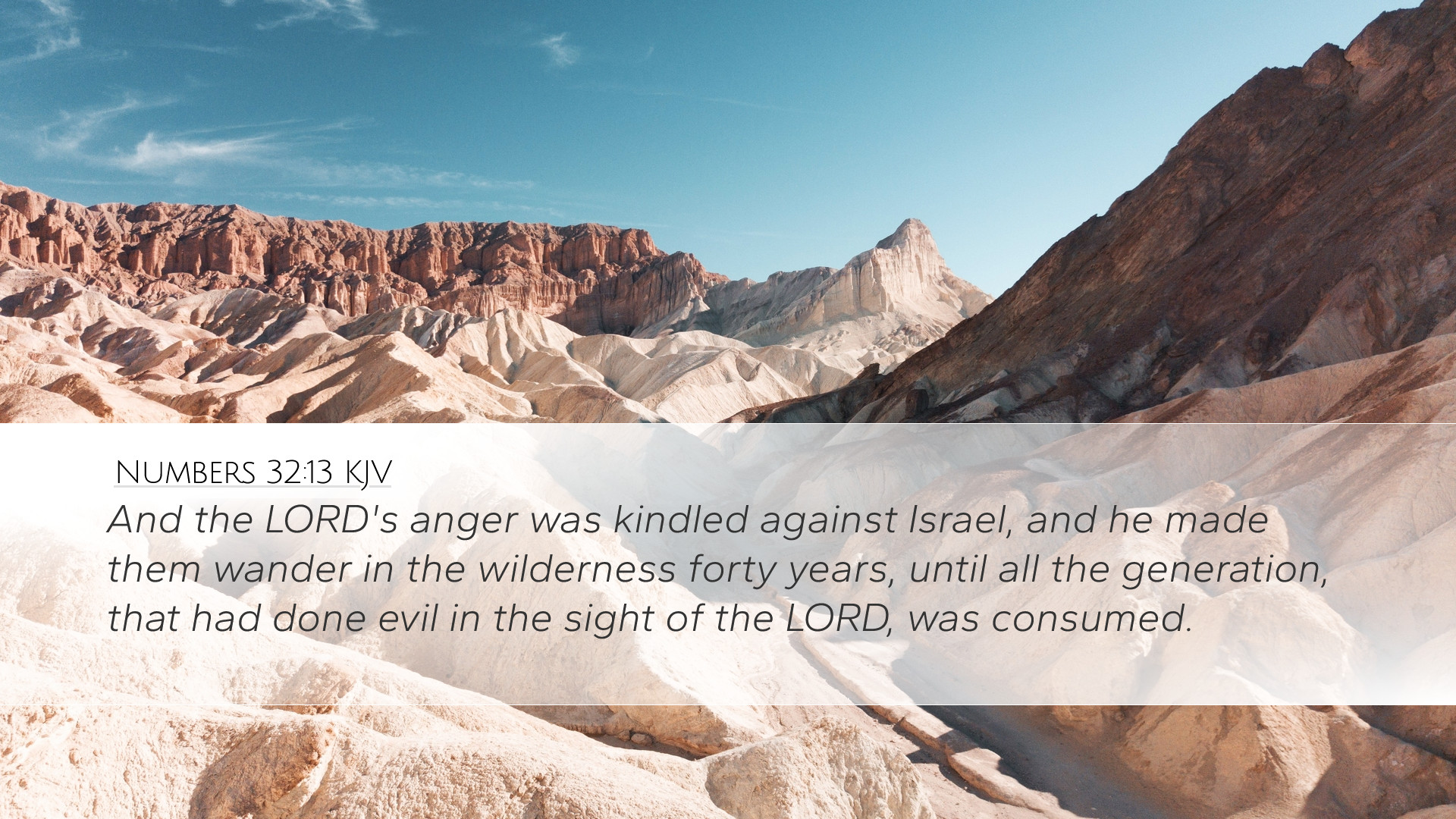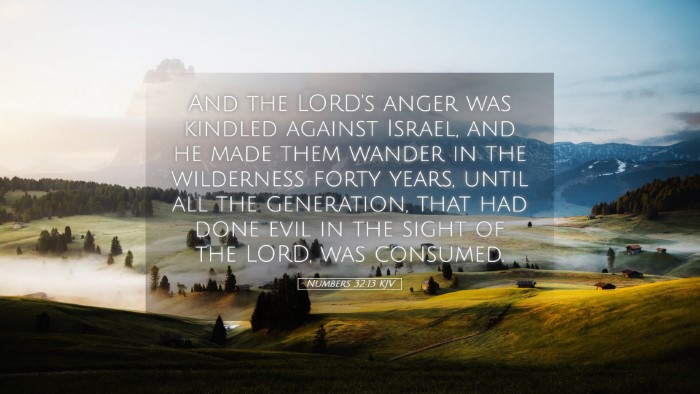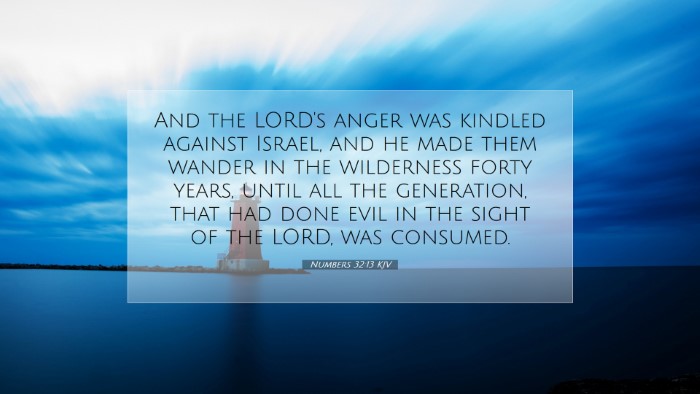Commentary on Numbers 32:13
Numbers 32:13 states, "And the LORD's anger was kindled against Israel, and he made them wander in the wilderness forty years, until all the generation that had done evil in the sight of the LORD was consumed." This verse offers profound insights into the consequences of disobedience and rebellion against God. The esteemed commentaries of Matthew Henry, Albert Barnes, and Adam Clarke provide a rich tapestry of thoughts on this pivotal moment in Israel's history.
Context and Overview
The context of this verse pertains to the Israelites' journey through the wilderness following their exodus from Egypt. It reflects a divine response to their persistent disobedience and lack of faith. As God leads His people to the Promised Land, their reluctance and grumbling result in severe repercussions.
Matthew Henry’s Insights
According to Matthew Henry, this verse illustrates God’s righteous judgment. His commentary emphasizes the theme of divine discipline: “God, who had been their guide and protector, justly withheld his favor from that generation that had done evil.” Henry notes that God's anger was kindled not out of caprice but as a necessary reaction to the people's actions against Him.
- Consequences of Disobedience: Henry asserts that the wilderness wanderings were not merely a punitive measure but also a process of purging. The consuming of that evil generation highlights the importance of holiness among God's people.
- Long-Suffering of God: Despite His anger, God's patience is evident. He gives the Israelites many opportunities to repent, demonstrating a balance between justice and mercy.
- The Importance of Faith: Henry points out that trust in God was paramount. The failure to believe His promises led to dire consequences, a recurring lesson in the journey of faith.
Albert Barnes’ Perspective
Albert Barnes highlights the theological implications of this judgment. He writes, “The severity of this punishment displays God's unyielding righteousness towards sin.” Barnes mentions that this verse serves as a stark reminder of the consequences of rejecting God's guidance.
- God's Sovereignty and Justice: Barnes articulates that through this historical event, God's sovereignty is undeniably evident. His justice requires that sin be addressed seriously.
- Philosophical Reflections: Barnes encourages deeper reflection on the nature of punishment. He posits that God’s actions are not random; they serve a purpose in shaping the community's character.
- Lessons for Contemporary Believers: Barnes calls on today's believers to heed these lessons against complacency and to strive for a deeper faith that aligns with God’s will.
Adam Clarke’s Commentary
Adam Clarke provides a broader historical context, examining the implications of Israel’s period in the wilderness. He elaborates, “The forty years serve not only as punishment but also as preparation for the new generation that would inherit the Promised Land.” Clarke emphasizes the necessity of preparation for leadership and faithfulness.
- Spiritual Formation: Clarke argues that the wilderness experience was essential in shaping a new generation capable of entering Canaan. Spiritual maturity often requires time and trials.
- Hope and Redemption: He notes that even amid judgment, God's plan for redemption remains intact. This principle applies today, indicating that God continually works toward our growth and restoration.
- Reflecting on Generational Change: Clarke discusses the significance of new leadership arising from the discipline of the previous generation as a model for contemporary ministries.
Theological Implications
The passage in Numbers 32:13 not only recounts historical events but also invites theological reflection on God's character. The commentary from these scholars emphasizes:
- The Nature of God: God's anger signifies His holiness and the necessity of accountability in His relationship with humanity.
- The Transformative Power of Trials: The forty years in the wilderness serve as a metaphor for the trials through which believers must endure to grow in faith.
- Legacy of Faith: This narrative challenges believers to consider their legacy and the faith they transmit to future generations.
Conclusion
In summary, Numbers 32:13 serves as a potent reminder of the relationship between sin, punishment, and redemption. The insights gathered from Matthew Henry, Albert Barnes, and Adam Clarke encapsulate significant themes relevant not only to the Israelites of old but to today’s context. As pastors, students, and theologians reflect upon this passage, they are challenged to embrace faithfulness and recognize the importance of obedience in God’s grand narrative.


